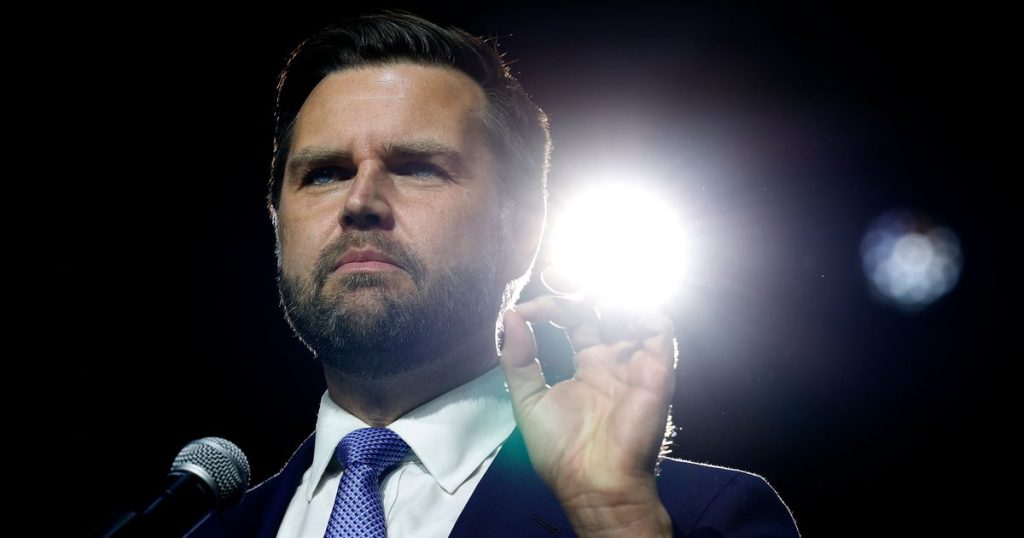In recent news, Donald Trump is distancing himself from the controversial Heritage Foundation’s Project 2025, which outlines radical changes for a potential second Trump administration. The plan includes dismantling the U.S. Department of Education, monitoring abortions, and obtaining pregnant patients’ medical records without consent. Despite Trump’s campaign denouncing any association with the project, reporting suggests deep ties between Project 2025 and Trump’s team, with many former administration officials involved in its creation. There are concerns that if elected, Trump and his running mate Sen. JD Vance may support Orwellian surveillance methods as outlined in the project.
Trump has shown disinterest in preventing conservative states from enacting strict abortion policies, stating that he supports the Supreme Court’s decision to overturn Roe v. Wade and return the issue to the states. Vance, on the other hand, has openly supported a national abortion ban and suggested federal intervention to enforce state-level bans. Both have shown a willingness to monitor pregnancies for evidence of abortion, and Vance has opposed measures to protect reproductive health care records. A potential Trump-Vance presidency could lead to the erasure of privacy protections and increased surveillance of reproductive health data, potentially impacting individuals seeking abortion services.
Project 2025 recommends comprehensive government tracking of abortion statistics and pregnancy outcomes, threatening to cut federal health funding for states that do not comply. The plan seeks to gather detailed information on abortions, miscarriages, stillbirths, and other pregnancy-related events, with a focus on demographic indicators. These proposals aim to control reproductive health data and restrict women’s access to abortion care, raising concerns about privacy violations and legal repercussions for patients and providers. The Trump campaign did not respond to requests for comment on these issues.
Efforts to expand surveillance of reproductive health data extend beyond the federal level, with some Republican lawmakers in states like Virginia blocking legislation that would protect data from period-tracking apps from law enforcement. Planned Parenthood and other advocacy groups warn that the Trump-Vance agenda threatens to restrict abortion access nationwide and undermine privacy protections for patients seeking reproductive healthcare services. The enforcement of draconian anti-abortion laws and the surveillance of pregnant individuals could have far-reaching consequences for reproductive rights and access to healthcare, prompting concerns among voters and advocates.
The push for increased monitoring of pregnancies and restrictions on abortion access reflects a broader ideological agenda within the conservative movement to control reproductive healthcare decisions. Critics argue that these measures are not about policy but rather about exerting control over women’s bodies and limiting their autonomy. The focus on surveillance and reporting of pregnancy outcomes raises ethical and legal concerns, particularly regarding privacy rights and patient confidentiality. As the election approaches, the debate over reproductive health surveillance and abortion access is likely to intensify, with implications for public health, individual rights, and government intervention in personal medical decisions.
With the potential for a Trump-Vance presidency looming, the debate over reproductive health surveillance and abortion policies is likely to remain contentious. Advocates for privacy rights and abortion access warn of the dangers of increased government monitoring of pregnancy outcomes and restrictions on reproductive healthcare. The intersection of politics, healthcare, and privacy rights in the context of Project 2025 raises important questions about the role of government in regulating personal medical decisions and the potential impact on individual freedoms. As voters consider these issues in the upcoming election, the debate over reproductive health surveillance and abortion access will continue to shape the political landscape and impact the lives of individuals seeking reproductive healthcare services.


